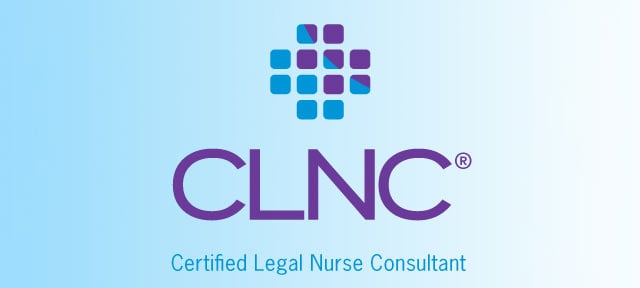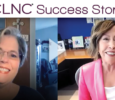First impressions are important. Today, more and more Certified Legal Nurse Consultants are making their first impressions online, not only with the legal community but also with other CLNC® consultants. So, what impression are you making with your online presence? Do you have a plan to guide and steer your online efforts in the right direction? Here are some strategies for making your first online impression count.
Facebook is one of the fastest growing forms of social media. My own Facebook profile is open to anyone to view. This includes attorneys, legal nurse consultants and just about anyone with a Facebook account. Keeping an open profile makes it easier for people to find me and takes up less “housekeeping” time. Other people choose to keep their Facebook profile open only to their “friends.”
Whatever your preference, think about who your “friends” are and what they are saying. Screen your prospective Facebook friends carefully. Do you personally know everyone on your friend list? Whether you do or don’t, you’ll need to check your Facebook postings daily and keep your profile page tidy. While you don’t have a lot of control over your “home” page you do want to cut out postings like “Susan invited you to a squirt-gun fight” or “Jamie scored 100,000 petals on flower-pot-mafia-shootout.”
You may not write something offensive on your “wall,” but someone else might and if an attorney-prospect sees it while vetting you, that might put an end to a relationship before it even begins. Make a choice, Facebook is either business or personal but you blend the two at your own risk.
Another form of social media is professional networking sites like LinkedIn. We’ve discussed LinkedIn in past blogs. Be sure that the members of any networking organizations (online or offline) that you join act professionally. As social networking grows in popularity, more and more people are drawn to it. But another caveat – be careful who you endorse, recommend and admit to your network. There’s an old saying that people judge you by the company you keep so keep that in mind when signing up for some of the networks out there.
As Twitter has grown in popularity, it has also grown in the number of people who send nothing but endless streams of meaningless dialogue (“RT @SammyTune Rock on You Mad Dogue”). In my opinion there are fewer and fewer people tweeting content. Just take a look at the main Twitter timeline and you’ll see what I mean. Yogi Berra is credited with saying something to the effect of “Nobody goes there anymore, it’s too crowded.” Twitter is rapidly reaching that point as spammers are now getting on board. Despite that, I’m staying with Twitter as an effective way to communicate with my “followers,” that is, people who read my tweets.
Be sure to use Twitter carefully. If you join Twitter you should know why you’re joining and be prepared to put some thought into your tweets. Be careful who follows you and who you follow. Just because someone has 2,121,407 followers doesn’t mean they have something important or relevant to say. There are lots of ways to artificially inflate follower totals using “autofollowing” programs. If you want to follow someone, take a look at who is following them. If their follower list is packed with spammers, crackpots or other undesirables you may not wish to follow that person. Likewise though, it’s easy for people (and their inane comments) to appear on the list of people you follow (and on your timeline). The more popular you become, the more people will try to ride on your coat-tails. (Believe, me, I know. Tom says some people have hung onto mine for so long they couldn’t even stand if they let go and tried to walk on their own.)
I recommend that you cull your Twitter followers, and people you follow, no less than daily. Again, people will judge you by the company you keep and I personally don’t believe Twitter is the place to let it all hang out on your religious and political opinions or anything you wouldn’t want your children to see.
Twitter is also no place for shameless self-promotion and you don’t want to be a serial tweeter. If someone has nothing to do but tweet all day, it’s apparent they’ve got nothing else to do and that tells you all you need to know about their success level. Tweet when you have something to say that informs and entertains.
Just remember to “protect your tweets.” You should approve each potential follower. It’s a slower way to build a following, but more reliable than letting just any old twit follow you. (If you want to entertain, remember Ashton Kutcher can show Demi in her undies but we don’t want to see your spouse in theirs!)
If your Twitter homepage is public and you list it in your marketing materials, you want only professional tweets appearing in case a prospective attorney-client visits your Twitter homepage. That means you follow only people who tweet professionally. My motto is quality over quantity. If you want to use Twitter for personal use only – keep it out of your business materials. There’s no middle road in my opinion. Tweet professionally and to professionals and expect the same back.
Keep It Professional
If you’re using your social media networks for professional use, the same rules apply to all social media sites regarding headshots, biographies and content. Post only a professional-appearing photograph for your thumbnail and reflect the image you wish to convey when adding photographs to your galleries. Those Catwoman Halloween costume shots are out no matter how much you like them.
Write a professional biography for your profile and only post when you have something to say. Make sure your posts are about something you’ll be comfortable with other people reading (friends don’t let friends drink and post). Always remember, social media is a form of communication that will last on the Web for a long time after you (or someone else) have posted and may come back to haunt you when you least expect it.
Remember, when posting anything online there’s no such thing as personal use only. More and more attorneys and their staff are searching the Internet, Twitter, Facebook and other social media sites for such diverse purposes as expert witness screening, jury selection and looking for evidence. Companies have long been Googling not only prospective, but current employees as part of the hiring and retention process. You’re being looked at whether you want to be or not.
Keep It Your Own
In whatever types of social networking you choose to participate, use the same good judgment you would when creating your website or running your legal nurse consulting business. Don’t use materials or intellectual property owned by others without their permission. Remember, as the ultimate publisher, you’re the one who will be held responsible for any infringements.
Find Yourself
Savvy legal nurse consultants run variations of their name through the different search engines at least once a month. These used to be “vanity searches,” but today think of them as “image maintenance.” Look to see what profile you present to the web and to prospective clients. You might be surprised, pleasantly or otherwise. If it’s unpleasant, it’s time to take some steps to correct that image. See you on the Web!
Success Is Inside!
P.S. Comment and share how you are using Facebook, LinkedIn and Twitter to make an online impression.









I followed Vickie’s advice of investigating what might be out on the web with my name on it. I googled my name and about 30 hits came up with the name “Diana Schmitt.” The other 30 million or so were variations of the spelling, but I only looked as far as page six.
Out of those 30 with my name, two of the hits were mine or in other words had something to do with me. The first one on page one was my January, ’09 newsletter, . The second one on page three was Vickie’s Legal Nurse Consulting Blog with my comment to the “Worst Advice…” Facebook came up as well as Linkedin and I already know I am in those.
Vickie, what other search engines would you recommend to do more investigating as to what could be out there with our names in them?
This was fun and a reminder to always be professional even in a social-cyberspace setting.
Diana,
Great question and one I’ll address on September 10, 2009 where I’ll discuss using “deep-web” search engines to look for information on the “invisible Internet.” I’m sure you’ll find lots of ideas you can use to help with discovering traces of your own online image.